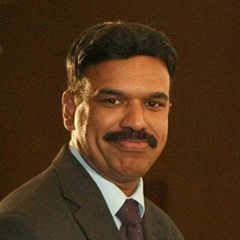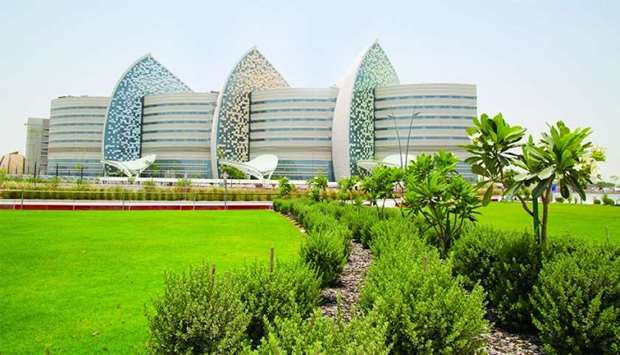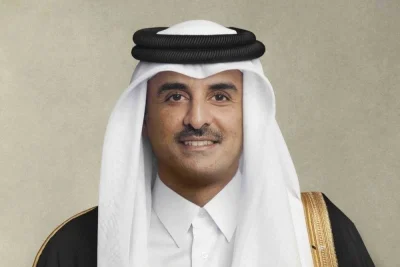Qatar has witnessed great strides in the healthcare sector despite the illegal blockade that has been in place against the country since June 5, 2017.
All public and private healthcare services across the country were delivered without any interruption and in fact, there were several areas which have seen huge improvements and innovations.
The country also witnessed the opening of several mega projects and the launch of the highly ambitious National Health Strategy (NHS) 2018-2022 during this period. The NHS 2018-2022 focuses on the triple objective of ‘better health’, ‘better care’ and ‘better value’.
Hamad Medical Corporation, with the largest expansion in its history, has opened three new hospitals, providing some of the latest and very innovative services and new care options for the residents of the country. The new hospitals - Ambulatory Care Center, Qatar Rehabilitation Institute and Women’s Wellness and Research Center - are hallmarks of excellence and innovation in healthcare.
Sidra Medicine - a beacon of healthcare excellence and an ultramodern, all-digital academic medical centre - opened the inpatient facility earlier this year. It is all set to make new standards in patient care for women, children and young persons in Qatar, the Gulf region and internationally.
At the 71st session of the World Health Assembly (WHA) in Geneva last month, HE the Minister of Public Health, Dr Hanan Mohamed al-Kuwari highlighted that irrespective of the blockade, Qatar has been providing the best healthcare for the citizens and the residents of the country.
“Although the blockade was sudden and unexpected, our country worked to overcome the situation through urgent plans with the aim of providing food and medicine through other alternatives. Qatar continued providing healthcare services to the entire population, including the citizens of the countries of the blockade, based on our absolute belief that health was a basic human right, and human rights should not be affected by political differences,” Dr al-Kuwari told WHA.
Dr al-Kuwari also pointed out that Qatar under the wise leadership of His Highness the Amir Sheikh Tamim bin Hamad al-Thani was working on continuous development of healthcare system, good health and well being of existing and future generations. “Qatar is committed to achieve comprehensive healthcare for all. Our country provides government - subsidised healthcare services which is available to all citizens and residents,” she added.
The NHS 2018-2022, launched under the theme ‘Our Health, Our Future’ reflects a global shift in thinking by focusing on seven priority population groups. It aims to shape services around people, patients and their families and change the way the health system works, moving from focusing on treating the symptoms of disease to helping people stay healthy.
The NHS 2018-2022 focuses on seven priority population groups, selected based on the current population and health needs of the Qatari society. In addition, the strategy specifies five priorities at the health system level, ranging from enhancing comprehensive care to health promotion in all policies to cover the basics of effective healthcare as defined by the World Health Organisation.
"There are specifically, 19 result-oriented main indicators of performance based on approved international standards to monitor the implementation of the strategy and guarantee that the principles of comprehensive healthcare are achieved throughout the system.This is supported by a sophisticated information system based on individual records to support the determination of priorities and monitor and evaluate development," Dr al-Kuwari highlighted during the launch of the NHS 2018-2022.
HMC’s new Medical City complex represents the biggest healthcare facility expansion in the region and will bring new services and care options to the people of Qatar.
Once fully operational, the three new hospitals will house 500 new hospital beds and 3,000 highly trained clinical and support staff.
“This is a project of immense size and complexity,” said HMC’s chief of healthcare facilities Hamad al-Khalifa. “It is a significant improvement in space, environment, and infrastructure compared to current HMC facilities - a state-of-the-art home for an increasing range of innovative services offering new models of care.”
It is the size of 35 soccer pitches and the facilities have unique features including:
Qatar Rehabilitation Institute is the largest rehabilitation hospital in the region at 38,000sqm. It houses seven indoor heated hydrotherapy pools, each with the highest water quality standards, and 11 rehabilitation gyms. It has more than 2,000m of pneumatic tubes crisscross the three hospitals and transport medicine and lab specimens to various units within the hospitals in minutes. It also has the largest healthcare kitchen in the Middle East and able to deliver up to 4,000 meals a day to patients and catering more than 65 different diets.
The Women’s Wellness and Research Center, expected to deliver over 17,000 babies annually, will provide the best start in life for them with more than 100 neonatal intensive care cots, seven operating theatres, 26 labour and delivery rooms, and 50 outpatient examination rooms.
The Ambulatory Care Center, which is delivering outpatient and day surgery services, is equipped with state-of-the-art theatres, an extensive radiology unit, examination suites and treatment rooms, and 12 examination rooms for ENT and audiology.
Sidra Medicine which had already started the operations of its Outpatient Department, opened the doors for the inpatients in January this year, heralding a new era in healthcare in the country, the region and beyond. The main hospital will initially have 400 beds with infrastructure to enable expansion to 550 beds in a subsequent phase.
The Outpatient Clinics at Sidra Medicine operates nearly 50 clinics, welcoming over 25,000 patients and performing 349 day surgeries in 2017. The hospital is to launch a Poison Control Centre and an In Vitro Fertilisation facility later this year. The high-tech, super specialty hospital for women and children, part of Qatar Foundation, will also launch the paediatric emergency by the end of the summer.
The hospital has also been aggressively recruiting highly talented medical professionals all though the year. “We have about 3,900 staff on board so far. By the end of this year we would expect to be around 4,800. We have been very successful in our international staff recruitment campaign,” said Peter Morris , CEO, Sidra Medicine.
There has never any public health risk associated with a medication or medical supply shortage. Dr Moza al-Hail, HMC's executive director of pharmacy noted that a number of local manufacturers prospered as a result of the blockade, viewing it as an opportunity to expand and increase their production.
“As part of its regular planning process, HMC maintains a large stock of medication and medical supplies. At any given time, we have many months’ supply of medications and other vital items. While some supply routes were interrupted, we successfully sourced new suppliers and explored domestic opportunities. Today we have strong relationships with several local companies and factories that provide various medications, including a number of the intravenous injection drugs our patients rely on,” highlighted Dr al-Hail.
Overall, the healthcare services in the country remained unaffected, and the blockade has in fact provided an opportunity to demonstrate innovation and self-sufficiency. Above all, since the blockade began, over 13,800 patients from Saudi Arabia, Bahrain, the United Arab Emirates, and Egypt have been cared for by HMC. It shows the resilience of the country and the determination of the people to overcome the challenges.




